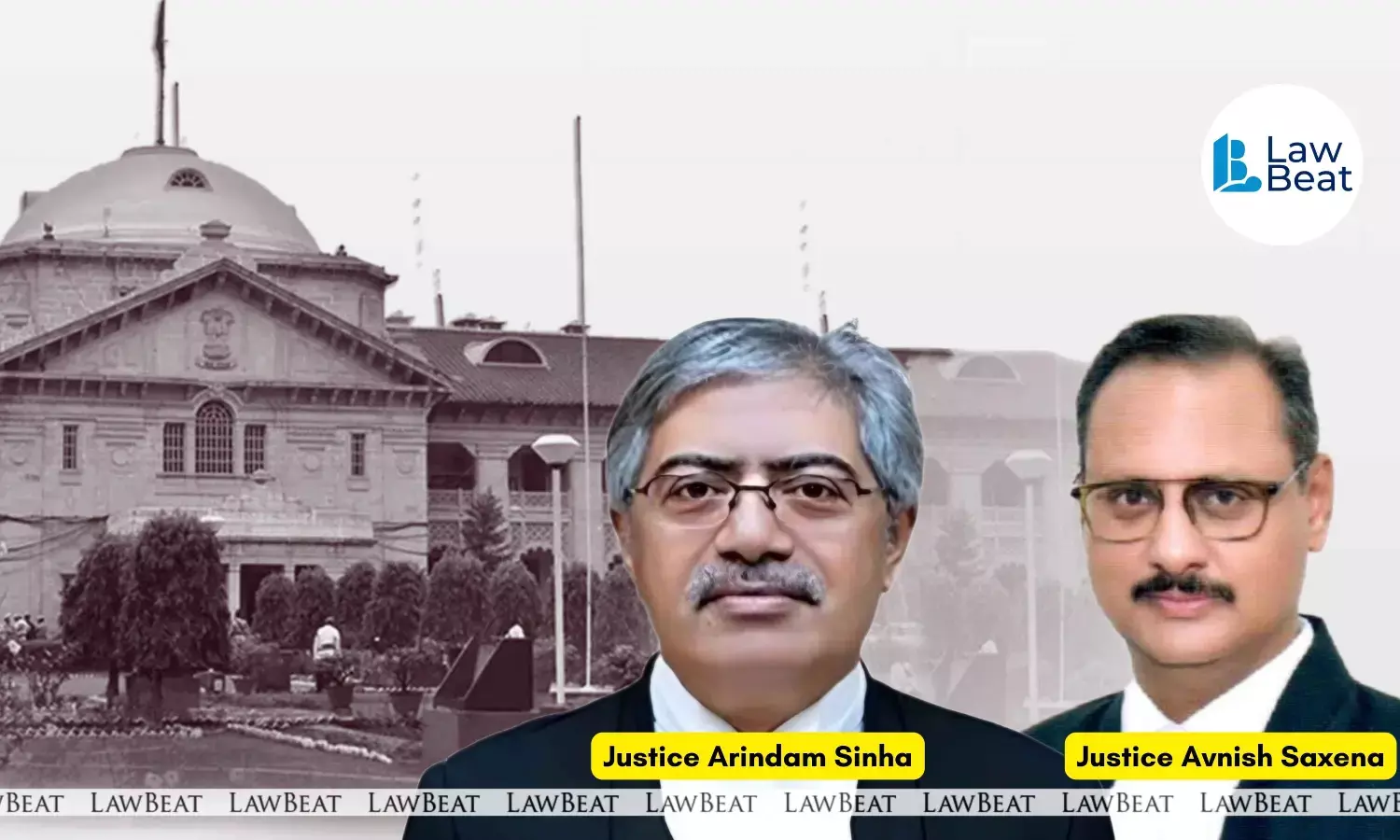Section 27 of Hindu Marriage Act Not Meant for Standalone Streedhan Claims, Says Allahabad High Court

The Allahabad High Court recently set aside a family court order that directed a man to pay over Rs. 10 lakh to his ex-wife as compensation for her ‘streedhan,’ holding that such a claim cannot be independently made by way of an application under Section 27 of the Hindu Marriage Act, 1955.
The division bench comprising Justices Arindam Sinha and Avnish Saxena was hearing an appeal filed by a man against the family court’s March 2022 order directing him to pay Rs. 10,54,364 to his former wife in lieu of streedhan articles.
The high court found the order legally unsustainable as it was based on an independent application under Section 27 of the Hindu Marriage Act.
Section 27 of the Hindu Marriage Act allows courts to make provisions regarding joint property presented at or around the time of marriage within a decree passed in matrimonial proceedings. However, in this case, the high court noted that the streedhan order was passed separately and not incorporated into the decree dissolving the marriage on May 1, 2023.
Court referred to a 2017 judgment of the Chhattisgarh High Court (Babita @ Gayatri v. Mod Prasad @ Pintu), which clarified that Section 27 cannot be invoked through a standalone application. "The provision has been made with an intent to avoid multiplicity of litigation and to entitle the wife to move application for return of Streedhan properties in the same proceedings, in which a matrimonial dispute has been brought to the Court for adjudication," the Chhattisgarh High Court had noted.
The Allahabad High Court agreed with this view that Section 27 has not been considered to be a separate and independent matrimonial proceeding so as to entitle the court to entertain such independent application.
It also referred to a judgment of the Supreme Court in Balkrishna Ramchandra Kadam vs. Sangeeta Balkrishna Kadam (1997) where it was said that Section 27 provides alternative remedy to the wife so that she can recover the property, which is covered by the Section.
“Accordingly, we hold, return of ‘stree dhan’ has to be an issue, to be determined at trial in a proceeding under the Act and not independently on application made under section 27,” the high court opined.
Regarding the present case, the bench questioned the family court’s reliance on photocopied jewellery receipts submitted by the ex-wife. There was no explanation as to why the secondary evidence was accepted, nor any direct proof that the man had custody of the jewellery in question.
Furthermore, court noted that the ex-wife had admitted during cross-examination that the man was in Bombay at the time of the alleged incident in 2014, when she claimed he forcibly took her jewellery and threw her out of the house.
The high court also addressed the financial aspect of the case. The man had already paid Rs. 7 lakh and the ex-wife had also recovered Rs. 2.1 lakh via partial execution of the earlier order. The bench ruled that these payments may be adjusted against any valid maintenance claim under a 2017 CrPC order, but could not sustain the streedhan decree.
While dismissing the ex-wife’s arguments that the appeal should be barred due to an unsuccessful review attempt and lack of challenge to execution proceedings, the high court emphasized that appeals are a statutory right. Since the impugned order was without jurisdiction, the execution based on it must also be dropped, it ordered.
Accordingly, the appeal was allowed, and the family court judgment was quashed. The high court clarified that any future recovery must adhere strictly to the statutory framework.
Case Title: Krishna Kumar Gupta vs Priti Gupta
Download judgment here
